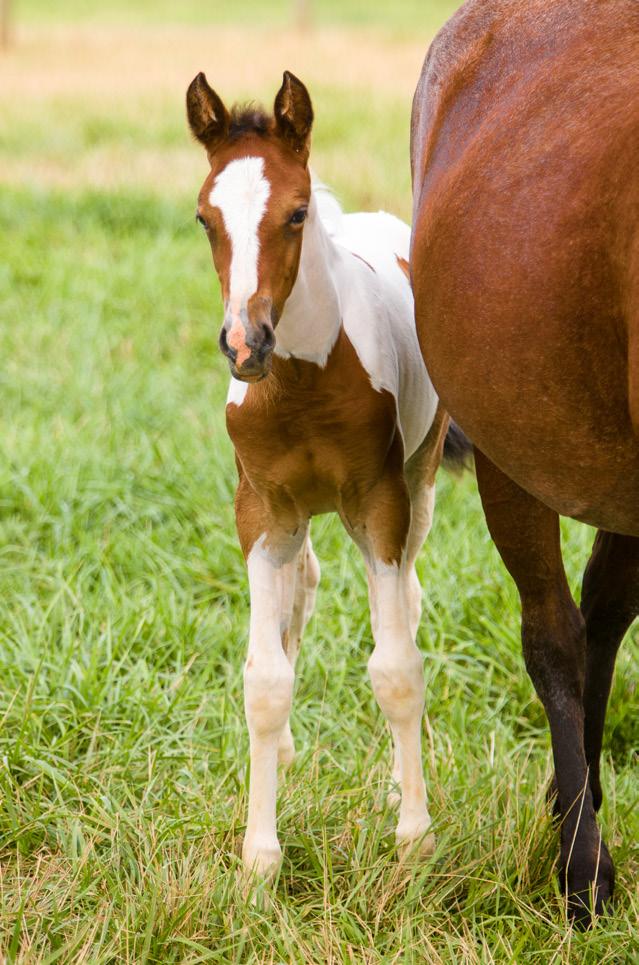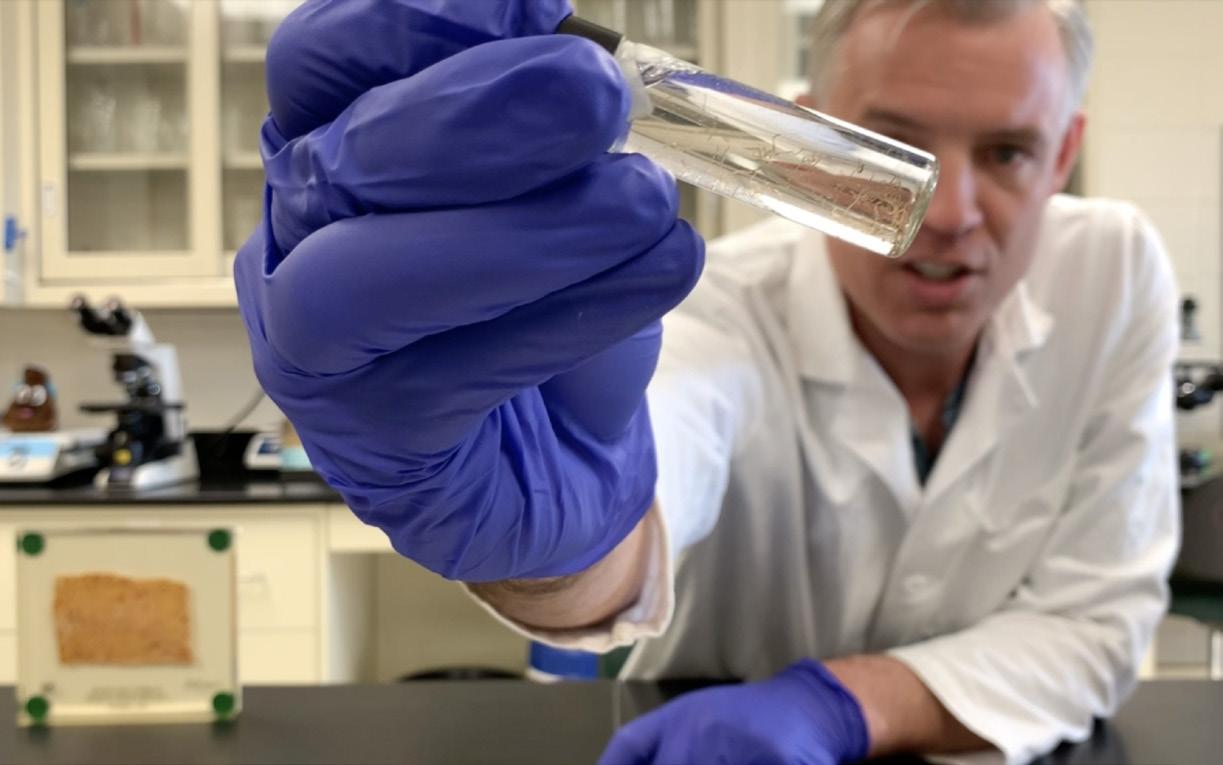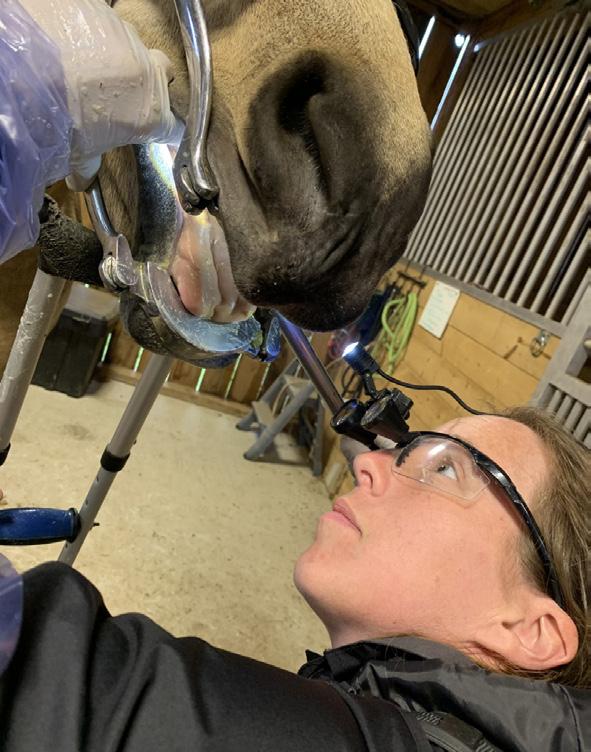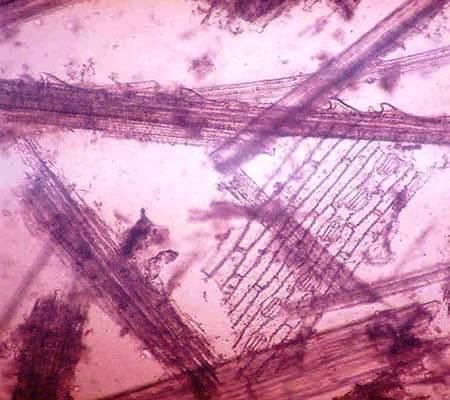RESEARCHING THE NORMAL TO BETTER PREDICT THE ABNORMAL
HOW ONE RESEARCHER IS USING HER BACKGROUND IN REPRODUCTIVE IMMUNOLOGY TO BETTER UNDERSTAND THE LEADING CAUSE OF EQUINE ABORTION The phenomenon of pregnancy has fascinated researchers for centuries. How does the developing fetus, a foreign body that expresses antigens from the father, survive undetected by the mother’s immune system? Initially, pregnancy was believed to survive due to a suppressed maternal immune system; and yet pregnant women can battle infection and mount responses to vaccines and any number of pathogens, leading to the realization that the female immune system wasn’t suppressed, but rather altered. But, what about the horse? This topic has been the primary focus of recent research by Carleigh Fedorka, PhD, postdoctoral scholar in the Gluck Equine Research Center laboratory of Barry Ball, DVM, PhD, Dipl. ACT, Albert G Clay Endowed
Fedorka’s research has focused on an understanding of the normal immune response to pregnancy in the horse, in addition to evaluating alteration within this response following pregnancy-related complications. Chair in Equine Reproduction. While much can be inferred from the human, the pregnant mare differs physiologically from the
pregnant woman in a variety of ways. Human gestation relies solely on the endocrine support of progesterone, while equine gestation is supported by metabolites of this hormone during much of gestation. The human fetus is surrounded by a single fetal fluid compartment (the amnion), while the equine fetus resides within two (the amnion and allantois). And while human placentation is a single layered hemochorial type (‘invasive’), equine placentation is a multi-layered epitheliochorial placenta (‘non-invasive’). Taken together, inferences made between the two may not be relevant. Therefore, Fedorka’s research has focused on an understanding of the normal immune response to pregnancy in the horse, in addition to evaluating alteration within this response following pregnancy-related complications, such as in the case of placentitis. To begin, the adaptive immune response to pregnancy was evaluated, the findings of which were recently published in the article, “Alterations in T cell-related transcripts at the feto-maternal interface throughout equine gestation,” in the journal Placenta. This branch of the immune system dictates both response to pathogens (pro-inflammatory Th1 cells / anti-inflammatory Th2 cells) in addition to tolerance of the semi-allogeneic fetus (meaning its genetic make-up is not identical
MAY 2020 | PAGE 5
PHOTO BY UK AGRICULTURAL COMMUNICATIONS
to the dam) by the regulatory T cells (Tregs). In the normal equine pregnancy, numerous aspects of the adaptive immune response were found to mimic what has been noted in the human, the most important of which was that the induction of tolerance towards the fetus was associated with a heightened Treg response. Additionally, it was noted that no alterations were seen in the pro-inflammatory Th1 transcripts within the semi-allogeneic placenta, indicating an evolved mechanism to remain undetected and not attacked by the maternal immune system. Understanding the normal immune response to equine gestation is an imperative so that alterations within this normal response could be assessed for potential biomarkers, therapeutics and predictors of equine




